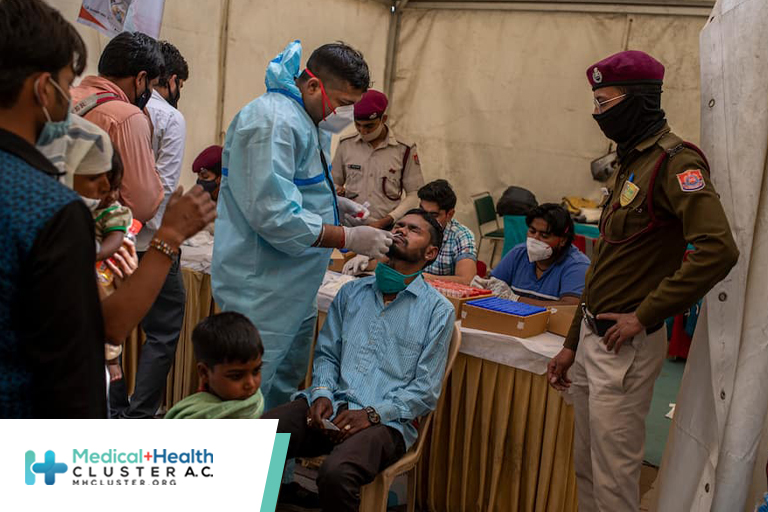En atención a la creciente preocupación sobre la confianza en...
Leer más
Pandemic lessons from India: inappropriate prioritisation for vaccination

We welcome Reddy’s editorial on covid-19 in India,1 but want to emphasise one further issue: how India’s national government has inappropriately prioritised people for covid-19 vaccination.
In January 2021, India’s vaccination programme began with health professionals and “frontline workers.” In March, it was extended to people aged 60 or over and those aged 45 or over with comorbidities, and in April to anyone aged 45 or over. From 1 May, vaccine entitlement was extended to all people aged 18 or over, although people under 45 must pay.
From 3 May to 5 June 2021, more first doses were administered to people under 45 than over 60, even though at least 77 million people aged 60 remain unvaccinated.2 This is causing many deaths that could have been averted by a more targeted approach.
In practice, access to covid-19 vaccination is mainly determined by socioeconomic status, with very low coverage in rural areas and among disadvantaged urban populations.3 Indians of all ages are increasingly resorting to private purchases, and the country’s minimal pension system makes this especially unaffordable for older people. No special provision has been made to facilitate vaccine access for adults with impaired mobility, and older people tend to be less familiar with the digital technology required to make a booking.
India is not alone in focusing its covid-19 vaccination on younger age groups.4 The director general of the World Health Organization said: “There is a disturbing narrative in some countries that it’s OK if older people die. It’s not OK . . . It is important that everywhere older people are prioritised for vaccination. Those most at risk of severe disease and death from covid-19, including health workers and older people, must come first. And they must come first everywhere.”5
Some Indian states have now reallocated available doses to older people.6 We urge the national government to do the same until all older people in India have received at least one dose. Its current approach to vaccination is causing huge numbers of avertable deaths and is deeply inequitable, both between age groups and within them.
Footnotes
-
Full response at: https://www.bmj.com/content/373/bmj.n1196/rr-0.
-
Competing interests: None declared.
This article is made freely available for use in accordance with BMJ’s website terms and conditions for the duration of the covid-19 pandemic or until otherwise determined by BMJ. You may use, download and print the article for any lawful, non-commercial purpose (including text and data mining) provided that all copyright notices and trade marks are retained.
Créditos: Comité científico Covid




